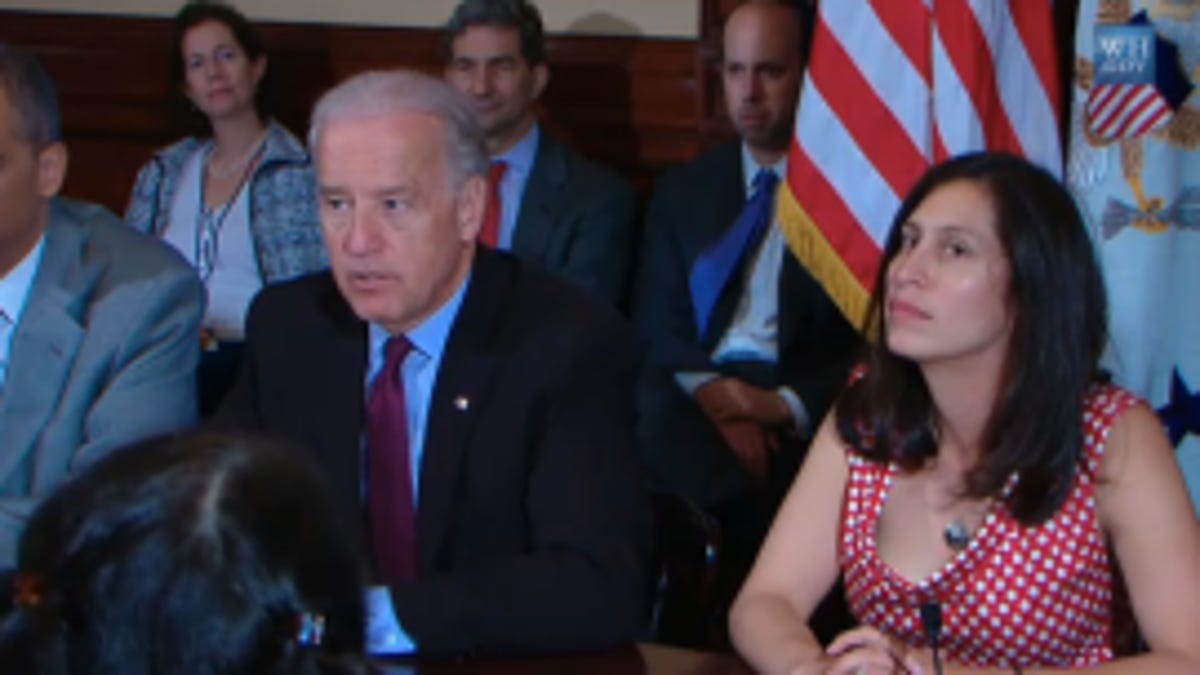White House pressures AOL, Google over pirate sites
AOL, Google, Microsoft, and Yahoo already prohibit pirate Web sites from joining their ad networks. But the White House says those four companies "are being encouraged" to do more.

Yahoo, Google, AOL, and Microsoft try not to let copyright-infringing Web sites sign up. Their advertising network contracts currently prohibit it.
But that isn't stopping the White House from pressuring those four companies to do more to satisfy Hollywood and other copyright holders who are peeved about online piracy -- in this case, that presumably means addressing piratical Web sites that cover their bandwidth costs through ad revenue.
A White House report (PDF) released today singles out those four companies by name, arguing that they and others should "act as checkpoints for infringing activity and reduce the distribution of infringing content." Here's an excerpt:
Ad networks and exchanges, including Google, Microsoft (Bing), Yahoo!, and AOL are being encouraged to develop best practices for online advertising networks and exchanges, in order to ensure that they do not place any advertisements on infringing Web sites, and to remove such Web sites from their ad networks.
This apparent strong-arming follows other enforcement deals that were technically voluntary and not mandated by law. There was last summer's announcement that Internet providers including AT&T, Verizon, and Comcast would become copyright cops. And American Express, Visa, and other companies agreed (PDF) around the same time to target "counterfeits on the Internet."
The odd thing, though, is that those four ad networks have hardly embraced online piracy. The longtime copyright hawks at Microsoft last year even endorsed the Protect IP Act, a Senate bill similar to the Stop Online Piracy Act in the House. (Today's White House report also called for a new law targeting suspected pirate Web sites.)
"AOL is involved in this effort," an AOL representative told CNET this afternoon. "We believe that maintaining quality standards for our advertising network is important. Our goal is to create an understanding of our current best practices." The other three companies singled out by the White House declined to comment.
Yahoo's policy explicitly lets it "terminate the accounts of users" who infringe copyright. AOL takes a similar approach. So does Google.
If they don't take these steps, the companies could be liable under existing law. A federal judge in Massachusetts ruled last December that an advertising network's facilitation of Web piracy can lead to liability for copyright infringement.
Offshore ad networks, on the other hand, are not as finicky. As CNET reported in December, ThePirateBay.org runs ads provided by Z5X.net, owned by the Ra'anana, Israel-based DSNR Media Group, which describes itself as a "recognized provider of result-based online and mobile advertising solutions." Other ads appear from CNI67.com. That appears to be owned by Sharon Jefet of InCauda, an Israel-based company that boasts of offering an "automatic targeting solution of Internet advertisements."
Large U.S. ad networks, and smaller ones including Burst Media and Casale Media, have made it clear that they do not permit pirate Web sites to participate, Pace Lattin, executive director of the Executive Council of Performance Marketing, wrote in a column last summer. He added: "There are still at least a dozen networks actively involved in placing advertisements on illegal Web sites."
Julie Samuels, a staff attorney at the Electronic Frontier Foundation, says that if the Obama administration wants to change U.S. copyright law, it should go to Congress.
"It seems to me that the administration is trying to use its muscle to push some of these 'voluntary partnerships' to do what they can't get through Congress," Samuels says. "What we've seen time and again is that these backroom deals are pushed through without real input from the users."

